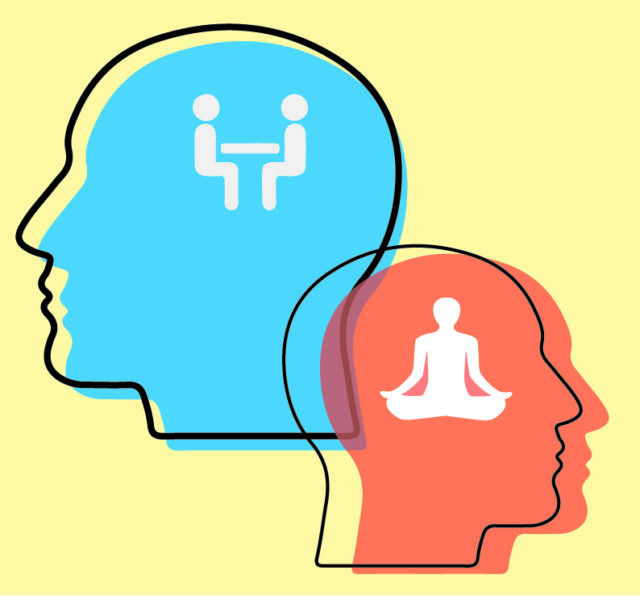One in four people in the world will be affected by a mental health or neurological disorder in their lifetime.
While this is a widely held statistic from the National Institute of Mental Health, it does not include everyone who needs treatment to remain happy, healthy and lead a life worth living.
Nobody’s Perfect
Although many people may think they lead a perfect life, they can be proven wrong even by the words of a teenager. “Nobody’s perfect. I gotta work it, again and again till I get it right,” Hannah Montana said. Even though she is a fictional pop star living the best of both worlds, she’s got a point.
Even if you are not diagnosed with a mental illness, you are not without need. Family, friends or significant others can be supportive, but they are not licensed mental health professionals or impartial parties.
A therapist, counselor or psychologist can help you cope with all the obstacles life throws at you. Therapy or other forms of treatment can also help you grow in self-awareness, learn more about who you are and become the best version of yourself that you were always meant to be.
College Life and Beyond
College students are the prime example of people who could use that extra set of helping hands or an extra push from the nest.
A 2018 survey conducted by the American College Health Association discovered that three out of five students experience overwhelming anxiety.
Dr. Anthony Rostain, a co-author of “The Stressed Years of our Lives,” said this current generation of college students are more stressed out than all the previous generations of college students. While Rostain’s book is targeted towards parents supporting their college-aged children as they navigate college, he observed that the trauma in the media as well as students’ lives could be the cause of this.
College is a stressful time. Students are forced to try and balance academics, extracurriculars, friends, chores and a job while living alone for possibly the first time in their life. And once students start getting used to the flow of collegiate life, they are suddenly tossed a cap and gown and placed on a conveyor belt for the rest of the foreseeable future.
It can be hard to catch a breath when you’re constantly going and working toward your future. College is fast-paced and busy, leaving some students unsure where to weigh close friendships and their mental health against academic and professional goals.
There is also a lot of emphasis on self-discovery, which can be especially difficult when you’re running on three hours of sleep, several cups of coffee and the stress of all your assignments that are due the next day.
A therapist can not only help students manage their lives, priorities and boundaries, but they can also help guide them along a path to self-discovery and make decisions that will benefit not only their future, but also their present.
Therapy is all about self-growth and self-betterment, and so is college, so the two should go together like milk and chocolate chip cookies. Although many college students struggle with mental health concerns like anxiety, depression or substance abuse, only about 10% to 15% of students actually make it to their counseling center or a therapist’s office, according to the American Council of Education.
Baylor University offers free counseling to students in the counseling center located on the second floor of the McLane Student Life Center. The counseling center can also offer different group counseling services, information and other resources for students to use to help self-betterment.
In addition to the counseling center, there is also a wide range of facilities around the Waco area from the Baylor Psychology Clinic downtown to the Waco Psychological Associates.
Life is Hard
Once you finish college and have your life planned ahead of you, you are still going to face obstacles that knock you to the ground.
Not surprisingly, hardships never really leave you alone at any point in your life. Financial struggles, break-ups, work conflicts, health problems and the loss of a loved one are all obstacles that you will eventually face, if you haven’t already.
No one really prepares you for hardships. Instead of waiting for a difficult circumstance to begin delving into your psyche and emotional tendencies, begin now while you’re in a healthy and stable place.
No matter who you are, as long as you are living within the human condition, you cannot do it alone. That’s why everyone needs to see a therapist.



